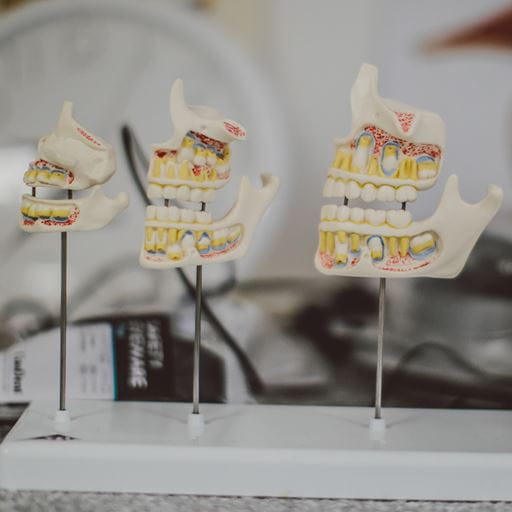Applications for 2025 entry are now closed. Applications will open for October 2026 entry in September 2025.
You are an Essex student from day one, a member of our global community based at the most internationally diverse campus university in the UK.
Our FdSc Oral Health Science is a programme which leads to the award of a Foundation Degree, and qualifies you to register with the General Dental Council (GDC)* as a Dental Hygienist. It is based on the General Dental Council's (GDC's) guidance document Developing the Dental Team and is kept under continual review to ensure that you are ‘fit to practise' upon qualification. Following the successful completion of this course, you may consider continuing your training with us to become a Dental Therapist through our BSc (Hons) Oral Health Science programme.
There's never been a better time to train as you can now apply for a £5000 grant that you won't need to pay back! There is also an extra £3000 funding available depending on your personal circumstances. You can find more information about eligibility and how to apply on the HSC Scholarships and Funding page.
At Essex we have one of the largest portfolios of oral health science courses in the East of England, putting us in a strong position to provide you with excellent training on this programme. You learn clinical skills in our state-of-the-art dental laboratories and academic dental clinics, studying oral health issues affecting the health of individuals and communities including:
- Pathology and disease
- Environment and work-safety issues
- Heredity, lifestyle, education, socio-economic factors
- Media influences
Through integrating your studies with other healthcare professionals, we ensure that you consider these wider issues in order to adopt a holistic approach to patient care.
Our aim is to create professional learning pathways to bridge the skill gap of the current NHS dental workforce while meeting your learning needs and helping you develop self-awareness, confidence and autonomy.
At the same time, we develop professional hygienists who through continuing professional development (CPD) courses, foster the habit of lifelong learning in order to meet the future needs of individuals and society. Our overarching aim is to widen access to professional education so that you can practise as registered practitioners safely and competently.
The School of Health and Social Care is proud to work closely with our Service User Reference Group (SURG). SURG is made up of service users, carers, and volunteers who generously share their first-hand experiences of health and social care. We work collaboratively with SURG to design our courses to ensure that we truly are putting the needs of patients and clients at the heart of what we do. SURG are involved as part of our course application processes and often form part of our interview panels. This helps us to be confident that we are selecting the right applicants for the course and their future careers. SURG members also support the delivery of our teaching sessions and research activity, which means you'll benefit from an insight into their lived experiences of living with a diagnosis, health condition, or circumstance. You'll find that not only does your clinical knowledge expand, but your empathy, compassion and ability to advocate develops also.
The cost of required uniform will be fully covered by the school.
Location
Whilst this course is offered at both our Southend and Colchester campuses, we recommend that you consider which location would suit you best and apply for that campus. If you apply to multiple campuses, you will only have one interview. If you pass the interview and we are able to offer you a place, you will be offered your first campus choice if available. If that campus is full, you will be offered the other campus. This is the same for applicants who only apply to one campus.
Once your place is confirmed, requests to change campuses are not possible due to the restrictions on numbers.
Placement Opportunities
During your study you will undertake four placements. These are based on educational need and are allocated by the placement lecturer. You will be required to undertake 14 hours of placement per week. Our placements are primarily based in Essex.
As a student of FdSc Oral Health Science you are not eligible for an NHS Bursary but can claim travel expenses if the travel mileage from term time address to placement is greater than term time address to university.
Unfortunately if you need a Student Visa to study in the UK this course is not suitable for you. This is due to the high percentage of work placement which exceeds the amount permitted in the Student Visa regulations.
DBS and Occupational Health Checks
This course requires a satisfactory Occupational Health Check and enhanced Disclosure and Barring Service (DBS) Check (including child and adult barred list check) - both of these are organised by the University. Please contact our DBS team or Occupational Health team if you have any questions in relation to these checks.
You will also be required to register for the DBS Update Service. You will need to register for this within 30 days of your DBS certificate being issues. The Update Service costs £13 per year, which the University will reimburse. You will need to keep the subscription to this Service active for the duration of your course. If you do not register for the Update Service within 30 days, or your registration lapses, and you later attend placement where this is a requirement, you will have to pay for a new DBS check, which will enable you to sign up to the Update Service. Please contact our DBS team if you have any questions relating to this.
A satisfactory Overseas Criminal Record Check/Local Police Certificate is also required, in addition to a DBS Check, where you have lived outside of the UK in the last 5 years for 6 months or more. Further information about how to obtain an Overseas Criminal Record check can be found on the Gov.uk website.
We continue to recommend Covid and flu vaccination to all of our students. This is to protect both yourself and the vulnerable people that you may meet throughout your placement.










